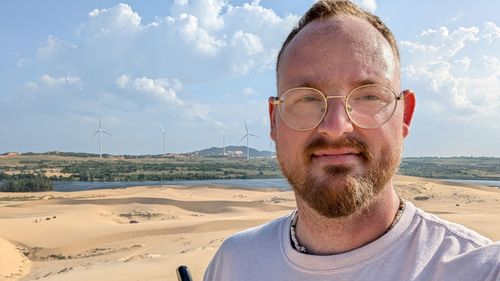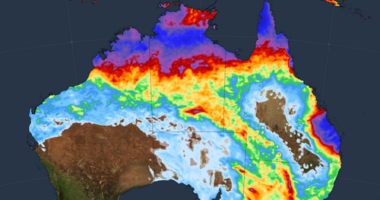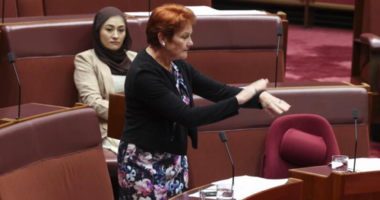Share this @internewscast.com
Exclusive: For Queensland resident Adam Kertesz, securing employment has become as elusive as hitting the jackpot. Competing against thousands for some job openings, he feels the odds are stacked against him.
Over the last year and a half, Kertesz has sent out more than 300 job applications, primarily for entry-level positions, but has yet to find success.
At 31, Kertesz brings a wealth of experience from the hospitality sector, having worked at a prestigious five-star hotel in London and the Gabba cricket ground in Brisbane.

He is academically accomplished, holding a Bachelor of International Relations and Public Policy from the University of Queensland. Additionally, he has earned a TAFE Diploma of Travel and Tourism Management and is on the brink of graduating with another diploma in Travel and Tourism.
Despite these qualifications and experiences, Kertesz shared with 9news.com.au that they have not been sufficient to secure him a position in the job market.
Yet even these qualifications have not been enough to secure him a job, Kertesz told 9news.com.au.
“It’s absolutely ridiculous and it’s scary,” he said.
“I’m a week away from finishing a diploma of travel and tourism and I’m looking for any employment that is available.”
Kertesz said the hospitality jobs he was applying for regularly had hundreds of applicants, and entry-level jobs, which appealed to a broad range of people from different backgrounds, often got thousands of applications.
Last month, Kertesz applied for a casual job with the Port of Brisbane, unloading containers at $38 per hour, with no experience necessary.
He said he was dismayed when he saw the number of people who had applied – 6500.
“When you don’t have any money to your name, all you want to do is work,” he said.
“But how are you going to get a job when there are thousands of people ahead of you?”
Having spent several years teaching English overseas, Kertesz returned to Australia in 2023 and said he had been applying steadily for jobs ever since.
However, he never expected it to be so hard.
“The government say they’ve created jobs, and they probably have. But they don’t understand how hard it is to obtain employment in Australia,” he said.
“It’s very, very difficult – it’s become like winning the lottery.”
Kertesz said he was often being told he did not have enough experience for a job, or he was too old.
“I’ve applied for well over 300 jobs (online). I’ve gone out and pounded the pavement, and I’m getting told you need experience, or they want younger people,” he said.
Kertesz said he had also applied for jobs at Woolworths and Aldi supermarkets.
His application was unsuccessful.
“Some companies give you a first interview, but the interview is with a robot,” he said.
“It’s absolutely ridiculous. How can a robot determine if you’ll be good at the job or not?”
Aside from the Woolworths AI interview, he had only received one other offer of an interview during his current job search, Kertesz said.
“I dressed up and everything for the interview, and I got to the building about 20 minutes early, and then they called me, saying that they are sorry, they had changed their minds and already filled the position.”
Unemployed out of work for longer, report finds
Anglicare Australia’s Jobs Availability Snapshot 2025 found that the chances of job seekers finding entry-level work were so low that “even the most determined will be left behind”.
The report compared the number of people receiving JobSeeker payments with the number of entry-level positions advertised in August this year.
It found that for every entry-level vacancy, there were 39 job seekers, up from last year’s figure of 35.
Chambers said the findings show the need for urgent reform to the welfare system.
“All of this shows that people are being failed by a system that treats unemployment as a personal fault instead of a policy failure,” she said.
“Taxpayers are spending billions of dollars on private employment providers whose business model depends on compliance and punishment.
“They profit whether or not people find work.
“Meanwhile, people are stuck in endless appointments and meaningless activities — all while competing for jobs that simply aren’t there.”
This month, Australia’s unemployment rate was sitting at 4.3 per cent in October, according to the Australian Bureau of Statistics.
That figure is down from 4.5 per cent in September.
Australia’s unemployment rate hit a record low of 3.2 per cent in October 2022 and has been slowly climbing since then.













